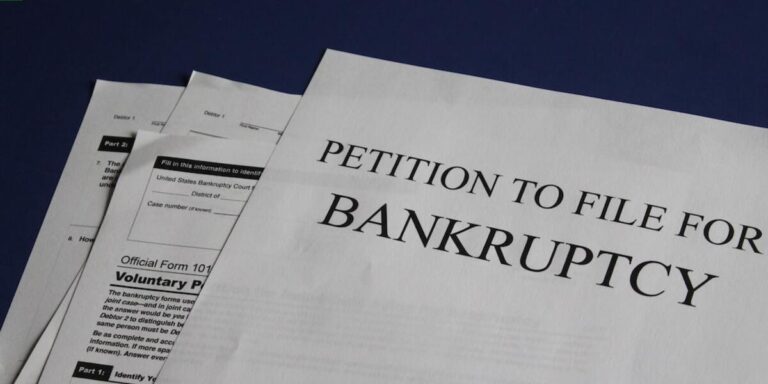What is a succession affidavit of death and heirship in Louisiana?
Succession affidavits of death and heirship in Louisiana are important documents for the process of transferring a deceased person’s assets to their heirs. Forced heirship is an essential part of inheritance law in Louisiana, which requires that certain family members receive specific portions or shares from the estate regardless if they were named as beneficiaries by the decedent. It is therefore crucial to understand what succession affidavit means when dealing with this kind of legal situation.
A succession affidavit provides evidence about who has died and establishes proof regarding any claims made against them after their passing away. This document can also help identify all potential heirs so that property may be divided among those entitled under state laws such as forced heirship rules in Louisiana inheritance law. A probate lawyer will have extensive knowledge on how best to handle these kinds of situations and can provide invaluable assistance throughout every step along the way, ensuring your rights are protected while making sure everything runs smoothly during this difficult time
Understanding Louisiana’s Succession Affidavit of Death and Heirship
Louisiana inheritance law requires that a succession affidavit of death and heirship be filed in order to determine the rightful heirs when an individual dies without leaving behind a will. This document is used by the court to establish who has legal rights to inherit property, assets or other items left behind by someone who died intestate (without having written a valid last will). The process for filing this document can vary depending on how much information is available about potential beneficiaries, but it typically involves obtaining affidavits from family members attesting their relationship with the deceased person as well as any evidence proving such relationships. In addition, some documents may need to be obtained from government agencies if they are relevant to determining eligibility for forced heirship laws which protect certain individuals’ right of inheritance even if there was no explicit provision made in writing prior.
A probate lawyer can help ensure all necessary steps have been taken during this complex process so that proper due diligence has been conducted and appropriate documentation submitted before making decisions regarding Louisiana’s succession affidavit of death and heirship . They also provide guidance throughout each step involved in establishing entitlement under state-specific forced heirship rules including gathering required records verifying familial ties between decedent and beneficiary(ies) , analyzing applicable statutes related thereto , preparing paperwork needed for submission into court proceedings etc..
Exploring Forced Heirship in Louisiana Inheritance Law
The concept of forced heirship in Louisiana inheritance law is an important one to understand. It dictates who may inherit from a deceased person’s estate, and the order in which they are entitled to receive it. This can be especially relevant when someone dies without leaving behind a will or other instructions for how their assets should be distributed upon death. In this case, state laws determine what happens with the decedent’s property—and that includes determining if any heirs must take part in inheriting certain portions of the estate based on “forced heirship” rules.
In general terms, forced heirship refers to those individuals who have legal rights as designated by statute or court ruling over specific parts of an estate regardless whether there was no will written up before passing away or not enough provisions were made within such documentations regarding said portion(s). These types of situations usually involve children being legally required (or “forced”) to share some percentage/portion inherited wealth amongst themselves even though it wasn’t specified through proper documentation beforehand nor requested by them directly at all times either; rather due so because its mandated via applicable regulations governing each particular jurisdiction respectively . A probate lawyer can help families navigate these complicated issues and ensure that everyone receives their rightful inheritance according to state law. They also provide guidance throughout every step involved with filing documents correctly during probate proceedings along ensuring compliance under local ordinances & statutes related thereto too – thus providing peace-of-mind knowing your loved ones’ final wishes would still remain respected despite any possible discrepancies encountered down line thereafter accordingly speaking
Benefits of Working with a Probate Lawyer for Your Estate Planning Needs
The laws surrounding estate planning can be complex and difficult to understand. Forced heirship in Louisiana inheritance law is one such area that requires the assistance of a knowledgeable probate lawyer. A skilled attorney will have an understanding of all relevant state regulations, including those related to forced heirship provisions, so they can provide sound legal advice for your specific situation. Working with a qualified professional ensures you are taking steps necessary to protect yourself and loved ones from any potential problems or disputes down the road when it comes time for asset distribution after death.
In addition to providing guidance on how best to handle issues like forced heirship in Louisiana inheritance law, a probate lawyer also helps clients prepare wills and other documents required by their state’s statutes governing estates; advise them about tax implications associated with transferring assets upon death; represent them if litigation arises regarding matters pertaining to the estate; assist executors during administration proceedings; ensure debts are paid off properly before distributing remaining funds according property division guidelines outlined in applicable legislation ; as well as many other services designed specifically help families navigate through complicated processes involving wealth transfer between generations . Ultimately , having access experienced counsel provides peace-of-mind knowing everything has been taken care while still honoring wishes expressed by deceased individuals .
Navigating the Complexities of Establishing an Heirs’ Rights to Property
The laws governing inheritance and the rights of heirs to property in Louisiana can be complex. Forced heirship is a particular area of law that many people are not familiar with, yet it plays an important role when establishing who has legal right to inherit certain types of property. Under forced heirship rules, children may have some degree of control over how their parents’ estate is divided after death or incapacitation; however there are limits on what they can do depending upon the type and value of assets involved.
When dealing with such matters, consulting a probate lawyer experienced in Louisiana inheritance law will help ensure all applicable regulations regarding forced heirship are properly followed so that any disputes between family members about who should receive which part(s)of an estate can be avoided or resolved quickly if necessary. A knowledgeable attorney also knows how best to document transactions involving real-estate transfers from one generation to another for maximum protection against future challenges by other potential beneficiaries as well as state agencies like tax collectors seeking payment for back taxes owed by deceased individuals at time death occurred . In addition ,a qualified probate lawyer provides invaluable guidance during times when emotions run high due unexpected changes in financial circumstances resulting from loss loved ones suddenly passing away without leaving behind clear instructions concerning division personal belongings among surviving relatives..
Frequently Asked Question
-
What are the classes of legal heirs?
-
What are the laws of heirship?
-
What is forced heirs in legal terms?
-
How can forced heirship be avoided?
-
Can a compulsory heir be disinherited?
-
Who is a forced heir in Louisiana?
-
Does USA have forced heirship?
-
What is the intestacy law in Louisiana?
-
Is there forced inheritance in Louisiana?
-
What is a succession affidavit of death and heirship in Louisiana?
According to Sunni Law there are three types of legal heirs: Sharers, Residuary, and Distant Kindreds. Quranic heirs are the sharers and have a fixed inheritance share. The sharers’ heirs, or Quranic heirs, are entitled to a fixed share. Residuaries do not receive a share of inheritance but can inherit the remainder after satisfying the claim.
India law states that a person can be determined to inherit the property of an ancestor who dies without making a will. A legal heir, on the other hand, is someone who claims the property of an ancestor’s estate by law or through a will.
Simply put, the law of forced inheritorship requires that an estate be given to the person’s children. These are called forced heirs. In the beginning, each child was considered a forced inheritor.
Three ways to restrict forced heirship
Yes. You can do it through disinheritance. A testamentary disposition that deprives any compulsory heirs from their share of the legitime is called disinheritance. You should understand that there is no disinheritance without a Will allowing for the disinheritance or distribution of an heir.
Forcible heirs can be descendants of the second degree that are younger than twenty-three years old at the time of death or descendents of the first grade of any age who are permanent incapacitated or permanently incapable of caring for their people or managing their affairs.
Louisiana is the one state that has forced heirship. Forcing heirs need to have their parents alive before they turn 24 years old, or have permanent disabilities or are unable to care for themselves. The legal definition of representation is forceful heirship.
LA Law of Intestate Succession to Children
Louisiana has Forced Heirship Laws. Children under 24 years old and children who cannot care for themselves or are physically or mentally incapacitated are not eligible. One child is considered a forced inheritor if there are no other children.
The Louisiana Small Estate Affidavit, also known as the “affidavit for small succession”, is a document that can be used to transfer property and assets that have a value of less than $125,000.
Conclusion
In conclusion, understanding the succession affidavit of death and heirship in Louisiana is important when dealing with inheritance laws. Forced heirship in Louisiana can be complicated but it’s a crucial part of probate law that must be taken into consideration. If you need help navigating these complex issues, make sure to do your research and look for trusted links or reviews on our website so you can find an experienced probate lawyer who knows how to handle forced heirship cases properly. With their guidance, you will have peace of mind knowing that your family’s rights are being protected under the law.







